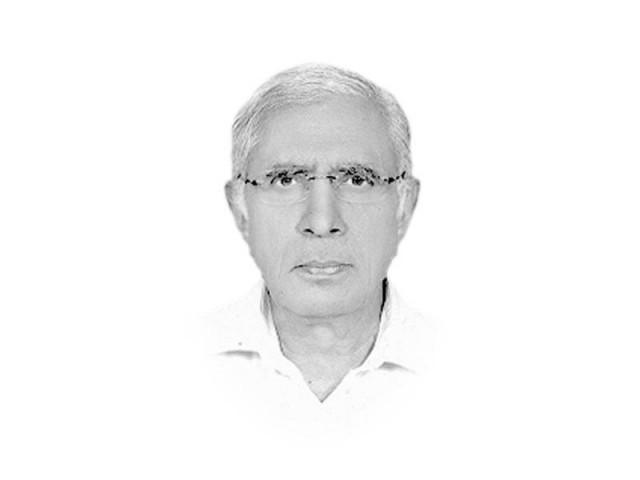Fragile, handle with care
Transitions are always prone to accidents

The writer served as Executive Editor of The Express Tribune from 2009 to 2014
However, it is also too naive to expect the establishment to even loosen its grip willingly over controls that it had held without break for decades on policy making and implementation. But of course, the very fact that both the institution and the elected governments have been seen to be cooperating, the former reluctantly and the latter in self-interest since at least 2008 in keeping the transition phase continue despite frequent challenges to the contrary reflects a seemingly deliberate willingness on the part of the two, it is hopefully presumed, to promote, protect and preserve the process leading to true democracy.
However, we still have a long way to go. There is no such thing as switching off one system of governance and switching on another overnight. Even with the establishment willing to give up ruling and the elected governments willing to take over accountable governance it will take perhaps another couple of decades for the exercise to complete to the fullest satisfaction of all concerned. And during this period the tension between the two is expected to continue, all the time giving the impression that an accident is just waiting to happen but at times turning these tensions into creative clashes.
The first period of transition from a colonial existence to an independent state that lasted almost 11 years starting 1947 met a calamitous accident in 1958 thanks largely to the in-experienced political leadership with both Quaid-i-Azam and Quaid-i-Millat having passed away very early in the day in quick succession and an exasperated civil-military bureaucracy losing patience with the usual tantrums of democratic process.
The next phase of transition began with the dismemberment of the country and lasted for just five years. This phase ended drastically enough, thanks largely to what could only be described as a constitutional dictatorship colliding with an establishment displaying an ideological bent of mind.
The third phase of transition from a system of rule that had turned the country into almost a theocracy and reframed it into a security state to the other one based on rule of law lasted for almost 11 years with many hiccups, finally springing back into reverse gear in 1999, thanks largely this time to inept civilian rulers whose strings were being pulled from behind the scene by an establishment unwilling even to share power with the elected governments.
This rupture was healed in 2008. The transition since then has lasted without meeting any serious accident but continues to remain highly vulnerable and prone to accidents. That it has not so far met with any accident despite having suffered a number of serious hiccups does not mean the country has finally set itself on a hassle-free democratic course.
Nevertheless, this period has thankfully seen two general elections and one transfer of power from an outgoing elected government to an incoming elected government rather relatively smoothly. It was, indeed the first ever such a change witnessed in Pakistan’s 70-year long history. Also, during the same period two Chiefs of Army Staff (COAS) have seemingly willingly called it a day, the first one with one extension of three years and the second one going home at the end of his constitutional term.
One would certainly feel grateful to both the Generals, Kayani and Raheel, for letting the elected civilians continue in their offices despite their continuous slip- ups in learning the ropes to govern efficiently. On the other hand, one would also like to credit both, former President Asif Ali Zardari and Prime Minister Nawaz Sharif for handling the transitional phase of handing over by the establishment and taking over by the civilian governments with a single-minded focus on self-preservation in the face of unrelenting onslaughts from the establishment, the judicial activism and an egocentric broadcast media.
One should also feel obliged to the Supreme Court of Pakistan which while protecting its independence and preserving activism has, in the current transition phase, so far managed to help the process along rather than hinder it despite being confronted with cases such as the memo-gate, ‘contempt of court’ by an elected Prime Minister, the accusations of rigging of 2013 general elections and now allegations of mega corruption.
The media has also contributed its bit in protecting, promoting and preserving the democratic process while at same time keeping the elected governments on their toes playing its role of watchdog to the hilt, at times to an exaggerated extent driven by its penchant for sensationalism.
Published in The Express Tribune, December 3rd, 2016.
Like Opinion & Editorial on Facebook, follow @ETOpEd on Twitter to receive all updates on all our daily pieces.















COMMENTS
Comments are moderated and generally will be posted if they are on-topic and not abusive.
For more information, please see our Comments FAQ